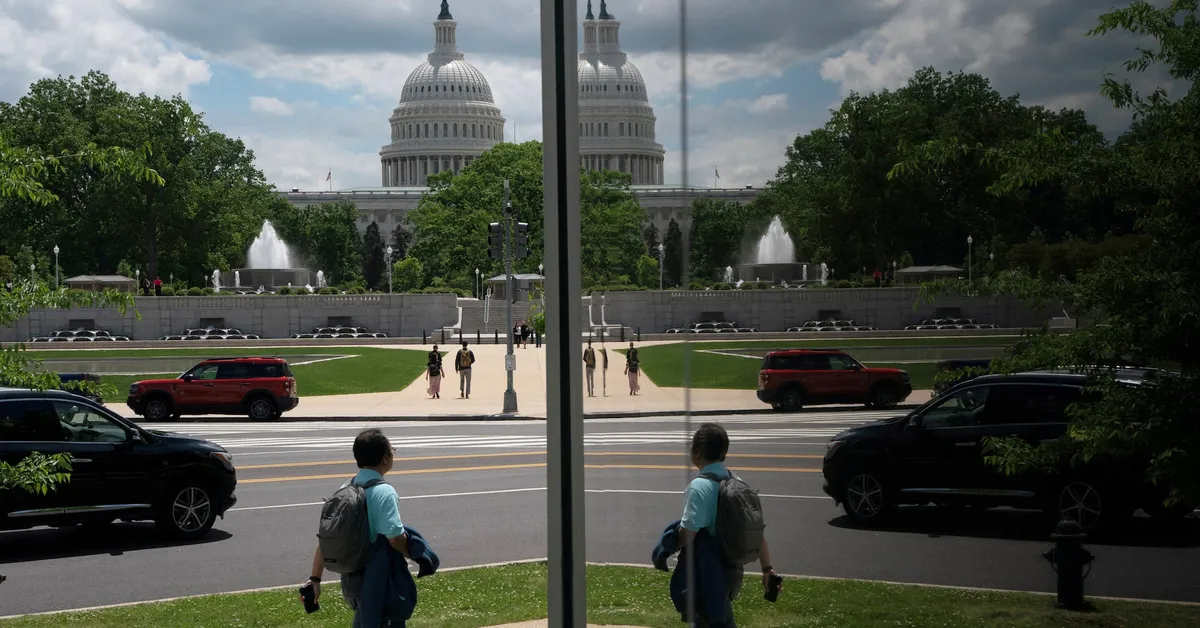
On May 14, 2023, Republicans in the U.S. Congress made significant strides in advancing President Donald Trump's comprehensive budget package. Key committees approved a series of tax cuts that could potentially add trillions of dollars to the nation's debt, while simultaneously proposing cuts to healthcare programs for the poor and disabled. As Democrats boycotted this crucial initiative, Republicans utilized their majorities in the tax-writing House of Representatives Ways and Means Committee and the Energy and Commerce panel, which oversees Medicaid and other healthcare services, to push the controversial bills forward.
Flexing their majority, Republicans successfully defeated all amendments proposed by Democrats to the Republican-drafted bill. This initial victory, however, comes with a caveat; Republicans face numerous challenges before they can present the extensive package of tax cuts, spending increases, and reductions in safety-net programs to Trump's desk for approval. Dubbed Trump’s “Big Beautiful Bill,” this package is projected to add an astounding $4 trillion in additional borrowing, raising concerns about the already staggering national debt, which currently stands at $36.2 trillion—127% of GDP.
Despite the apparent momentum, House Speaker Mike Johnson, a Republican, acknowledged that dissent exists within his party. Moderate Republicans from Democratic-leaning coastal states, such as New York, New Jersey, and California—states critical to the Republican majority—expressed concerns that the bill imposes a cap on state and local tax deductions that is too low. Representative Mike Lawler of New York stated, "As this stands right now, I am a 'no,' and they will need to find a solution quickly if they want to maintain their schedule."
Meanwhile, hardline Republicans are pushing for deeper spending cuts, with Representative Ralph Norman of South Carolina emphasizing the need for fiscal responsibility. "I'm trying to get the math in order to get this country back on track financially, and it just hasn't happened,” he remarked.
Following an extensive work session lasting over 26 hours, the Energy and Commerce Committee voted along party lines to tighten eligibility requirements for the Medicaid health plan, which currently supports 71 million low-income Americans. The committee engaged in heated debates over issues like abortion, prescription drug prices, and healthcare costs, with Democrats attempting to remove a provision that would deny Medicaid funding to Planned Parenthood.
Democratic Representative Lizzie Fletcher of Texas pointed out that the legislation could restrict Medicaid funds to Planned Parenthood even in states where abortion is illegal, thereby impacting essential services like cancer screenings and pregnancy visits. Senior Democrat on the committee, Representative Frank Pallone, criticized the Republicans for prioritizing cost savings to finance tax cuts for the wealthy, rather than implementing changes based on sound health policy. "Why are we just talking about numbers?" Pallone questioned.
Republican Representative Buddy Carter defended the proposed changes, asserting that they would not adversely affect those who legitimately qualify for Medicaid benefits. "We are trying to stabilize this, to secure it, to save it," he stated. According to the nonpartisan Congressional Budget Office, the committee’s Medicaid plan could save the federal government $715 billion but would also result in approximately 7.7 million people losing access to the program.
In addition to healthcare issues, a third panel is examining agriculture and nutrition topics, which includes a proposal requiring some recipients of SNAP food benefits to obtain employment, as well as shifting certain costs to states. The proposed budget package not only aims to extend tax cuts enacted during Trump's first term, which are set to expire at the end of the year, but also introduces new tax incentives for workers, retirees, and private educational institutions.
To manage the projected costs, the package seeks to eliminate green-energy programs that were established under Democratic President Joe Biden. The urgency surrounding this legislative effort is heightened by the looming debt ceiling deadline this summer. The proposed package would raise the debt limit by $4 trillion, and Treasury Secretary Scott Bessent has urged lawmakers to act by mid-July to prevent a potential default that could destabilize the global economy.